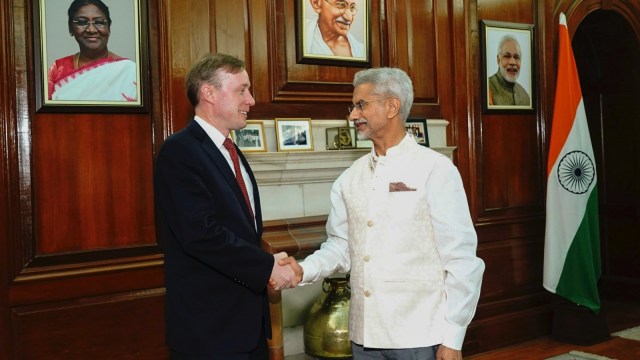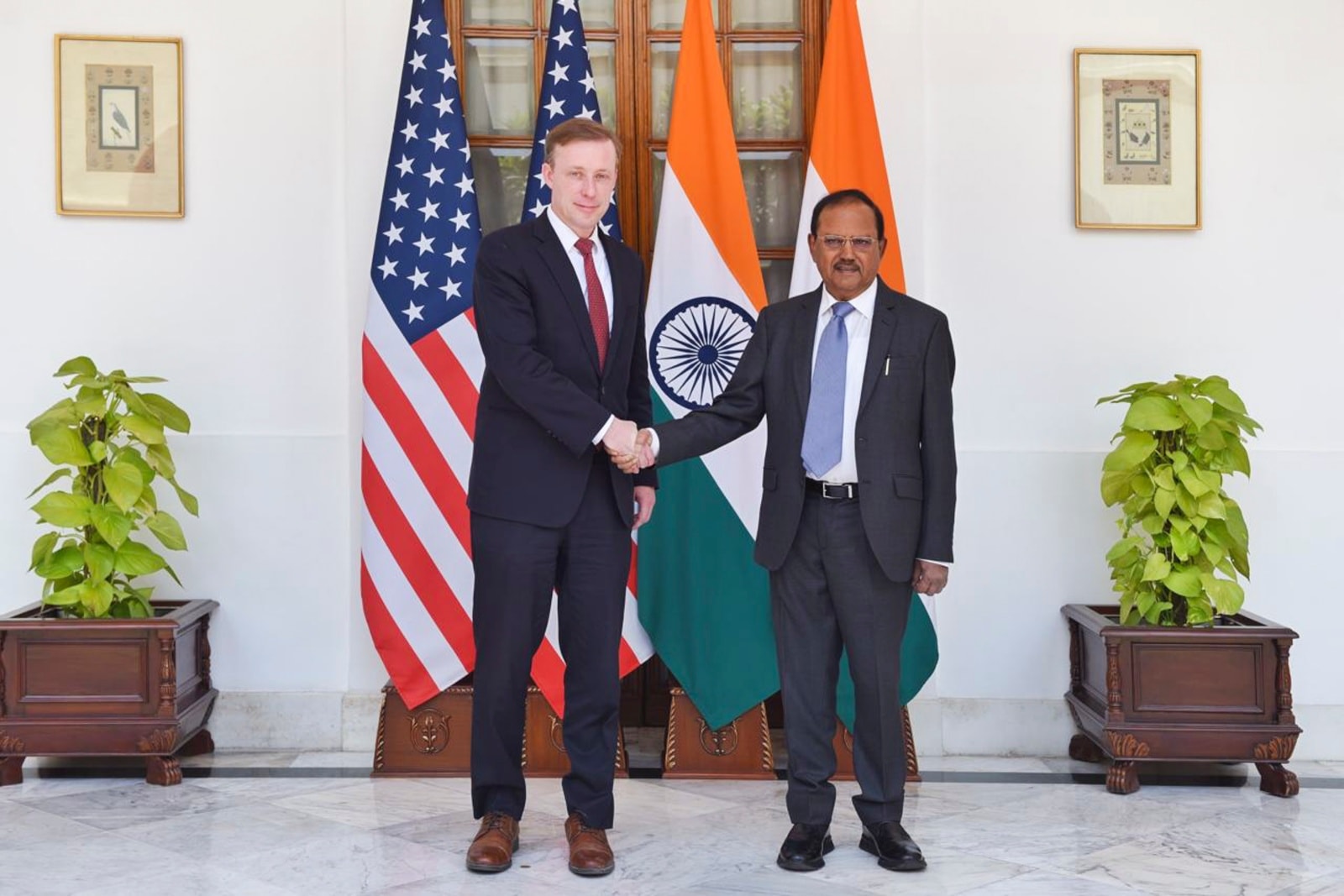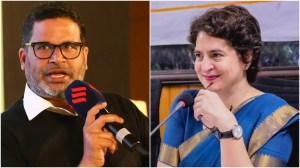In the first official visit from the US since Prime Minister Narendra Modi was re-elected for a third-term, US National Security Advisor Jake Sullivan met National Security Advisor Ajit Doval and agreed to strengthen cooperation in a range of areas — Defence technology, Space, Artificial Intelligence, High-Performance Computing, critical minerals among others.
Sullivan, who is in India on a two-day official visit beginning Monday, also met External Affairs minister S Jaishankar.

According to a joint fact-sheet, Doval and Sullivan chaired the second meeting of the India-U.S. initiative on Critical and Emerging Technology (iCET) in New Delhi in which they “set the vision for the next chapter of our strategic technology partnership”.
Sullivan also met Prime Minister Narendra Modi who tweeted: “India is committed to further strengthen the India-IS comprehensive global strategic partnership for global good.”
Both sides underscored their commitment to “ensure we stay at the leading edge of innovation and enhancing coordination with like-minded nations to deliver secure, reliable, and cost-competitive technology solutions for the Indian and American people and our partners around the world,” it said.
They underscored the vital importance of “adapting our technology protection toolkits and resolved to prevent the leakage of sensitive and dual-use technologies to countries of concern”.
 New Delhi: National Security Adviser (NSA) Ajit Doval and US NSA Jake Sullivan during a meeting, in New Delhi, Monday, June 17, 2024. (PTI Photo)
New Delhi: National Security Adviser (NSA) Ajit Doval and US NSA Jake Sullivan during a meeting, in New Delhi, Monday, June 17, 2024. (PTI Photo)
Both also committed to take concrete action in the coming months to address long-standing barriers to bilateral strategic trade, technology, and industrial cooperation, including in the commercial and civil space sector.
Story continues below this ad
* Deepening Defence Innovation and Industrial Cooperation: This includes discussions on India’s planned acquisition of the “MQ-9B platforms, the possible co-production of land warfare systems, and progress on other co-production initiatives” like the GE Aerospace-HAL project of engines to power India’s fighter fleet
* Securing Semiconductor Supply Chains: Strategic partnership to co-develop semiconductor design and manufacturing for precision-guided ammunition and other national security-focused electronics platforms; partnership between industry groups to identify “near-term opportunities” and facilitate longer-term development of “complementary semiconductor ecosystems.”
* Civilian and Defense Space Technology Cooperation: Securing a carrier for the first-joint effort between NASA and ISRO astronauts at the International Space Station; Strategic Framework for Human Spaceflight Cooperation to deepen interoperability in space; preparation for the launch of the NASA-ISRO Synthetic Aperture Radar, a jointly developed satellite that will map the entirety of the Earth’s surface twice every 12 days; strengthen defence space cooperation through the second Advanced Domains Defense Dialogue held at Pentagon in May 2024, which featured an India-US space table-top exercise and included bilateral expert exchanges on emerging domains including artificial intelligence.
* Clean Energy and a Critical Minerals Partnership: promoting India’s “vital role” in the Mineral Security Partnership, “including through co-investing in a lithium resource project in South America and a rare earths deposit in Africa”; an India-U.S. Advanced Materials R&D Forum” to expand collaboration between American and Indian universities, national laboratories, and private sector researchers.
Story continues below this ad
Sullivan’s visit comes at a time when India-US ties are going through challenges — especially in the context of an alleged assassination plot against Khalistani separatist figure Gurpatwant Singh Pannun. In fact, one of the accused in the plot, Nikhil Gupta was extradited from the Czech Republic to the US on June 14, days before the NSA’s visit.
The Indian government has said that it is holding a high-level probe into the US inputs on the alleged plot since November last year but there have been no outcomes so far.
Sullivan is accompanied by a delegation of senior US government officials and industry leaders.
The meeting builds on the work done following the launch of the India- US Initiative on Critical and Emerging Technologies (iCET) by Prime Minister Modi and US President Joe Biden on the sidelines of the Quad Summit in Tokyo on 24 May 2022. The two NSAs have driven a concerted effort to engage in identified areas of collaboration in diverse domains of new and emerging technologies, including Semiconductors, AI, Quantum Computing, Defence Innovation, Space and Advanced Telecommunications.
Story continues below this ad
Sullivan comes to Delhi after attending the peace summit in Ukraine in Switzerland and the G7 summit in Italy.



 New Delhi: National Security Adviser (NSA) Ajit Doval and US NSA Jake Sullivan during a meeting, in New Delhi, Monday, June 17, 2024. (PTI Photo)
New Delhi: National Security Adviser (NSA) Ajit Doval and US NSA Jake Sullivan during a meeting, in New Delhi, Monday, June 17, 2024. (PTI Photo)





